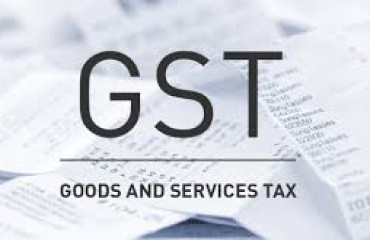
The spate of notices served by the Directorate General of GST Intelligence to online real-money gaming companies over goods and services tax dues of about ₹55,000 crore are reminiscent of the Vodafone direct-taxes saga. The notices include a GST notice for over ₹25,000 crore to fantasy sports platform Dream11, according to a report in the Economic Times, which also said the total demand could be ₹100,000 crore or more.
The spate of notices served by the Directorate General of GST Intelligence to online real-money gaming companies over goods and services tax dues of about ₹55,000 crore are reminiscent of the Vodafone direct-taxes saga. The notices include a GST notice for over ₹25,000 crore to fantasy sports platform Dream11, according to a report in the Economic Times, which also said the total demand could be ₹100,000 crore or more.
There are two problems with these tax demands. One, retrospective application of law is bad in principle. Two, it would crush the industry to pay dues that are many times its turnover.
The law on online gaming, approved by the Goods and Services Tax Council, is yet to be amended by state legislatures. The GST Council took the decision to raise the rates and recommended a 28% tax on the face value for online games, horse racing and actionable claims in casinos at the entry level. So, the GST rate for real money games is 28% on the total bet placed at the entry level of each gaming session on such platforms.
The notices sent to online gaming companies are for their past dues from July 2017 onwards, when GST was rolled out. Online gaming companies were initially charged 18% of the service fee on the platform. However, the government wants to charge 28% GST even on these past dues as it reckons that the amendment in law is clarificatory, meaning it was always the intent of the law to levy a 28% tax on the gross turnover of gaming companies.
This could spawn litigation, just as it did in the well-known Vodafone case that related to direct taxes. Recall that the then UPA government had amended the tax law in 2012 to overturn a Supreme Court order that had negated a tax demand on Vodafone India amounting to ₹11,792 crore and a subsequent penalty of ₹7,900 crore. The 2012 Amendment said capital gains tax would accrue in such indirect transfers, and that it had always been the "intention of the law" to include indirect transfers in transfers on which capital gains tax was due.
To drop the tax demand on Vodafone, that retrospective amendment would have to be reversed. That did not happen, leading to protracted litigation. Finally, the government had to honour the arbitration award that Vodafone won. Mistakes of this kind are wholly avoidable.
An ET report, quoting industry sources, said Dream11 has already moved the Bombay High Court against the pre-show cause notice issued to it. Earlier, Gameskraft, which was served a demand for about ₹21,000 crore, contested it in the Supreme Court after the Karnataka High Court ruled in its favour. The HC said companies offering online games of skills were not taxable as 'betting' and 'gambling' under the Central Goods and Services (GST) Act. However, the Supreme Court on September 6 stayed a high court order quashing the GST demand. The next hearing is expected by the end of the month.
A pragmatic solution would be to levy 18% GST on the service fee charged by gaming companies, constituting their revenue, on past dues as these companies simply do not have the ability to recover money from customers for games played years ago. Applying a law retrospectively is bad in principle. The government, which is keen to garner revenues, should see reason.
The total turnover of the gaming industry in India is some $2.2 billion, of which real-money gaming accounts for about three-fourths. That means the entire turnover of the industry is less than ₹14,000 crore. If an industry is forced to pay tax that is several times its annual turnover, it's hardly likely to survive.
If there were a cemetery for Indian online gaming companies, their tombstones would read 'Taxed to Death, RIP'. It was bad enough that the GST Council chose to levy GST on the turnover of gaming companies rather than on just the revenue accruing to them. Now the tax authorities have sent notices to gaming companies asking them to pay back taxes at a higher rate. If the tax department does not cease and desist, it will kill even the larger and more resilient players in the industry.
